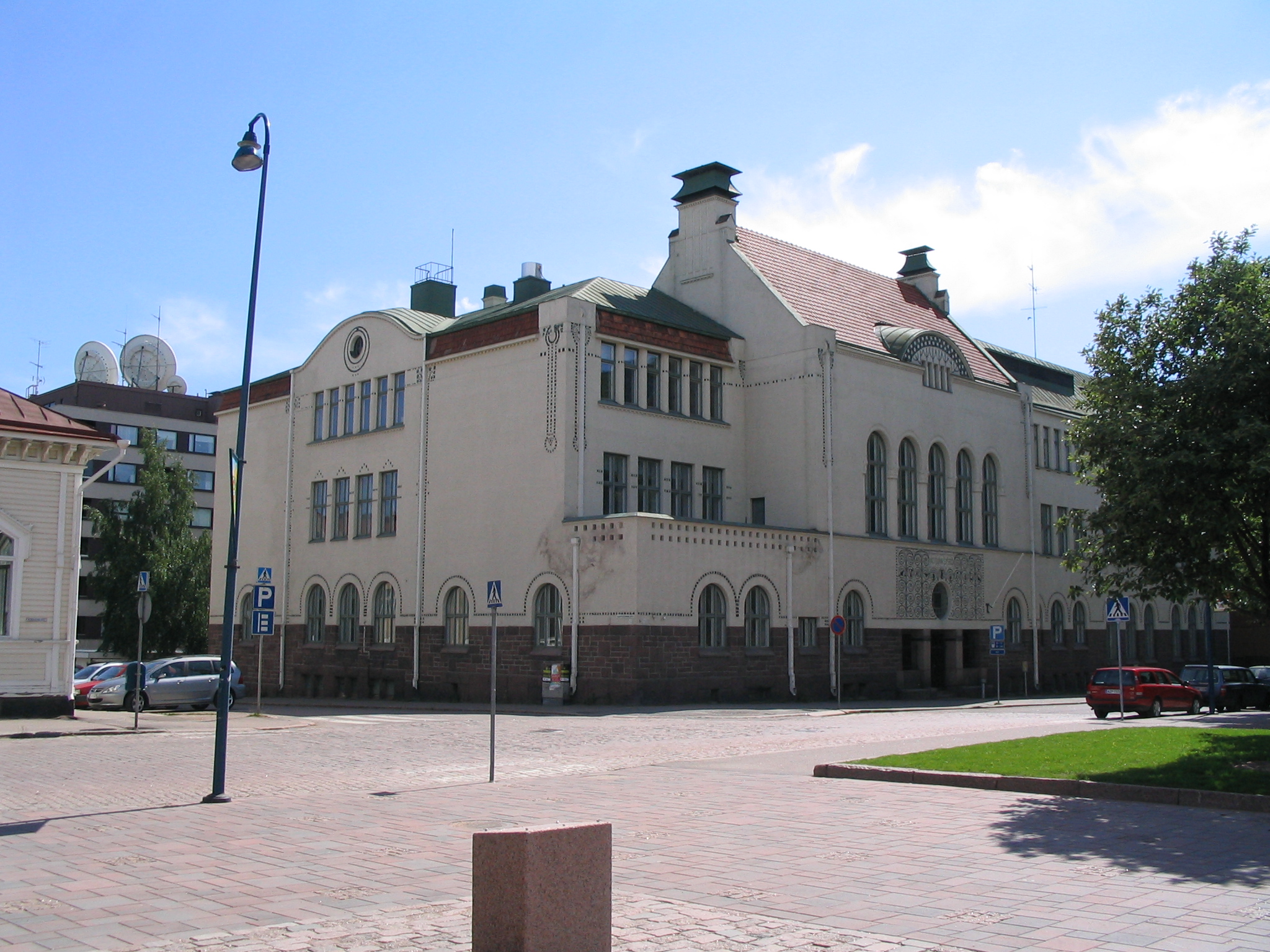|
Hella Brock
Hella Maria Brock (''née'' Siegmund-Schultze; 3 October 191930 November 2020) was a German music educator, musicologist, and an internationally known Edvard Grieg scholar. Brock was professor of music and English studies at the Leipzig University. She was president, and honorary president of the in Leipzig until her death in 2020. Life She was born Hella Maria Siegmund-Schultze in , now part of Jessen as the daughter of the lawyer and mayor of Schweinitz, Hans Siegmund-Schultze, and his wife, the teacher Ida née Böhme. She attended elementary schools in Magdeburg and Liegnitz, and from 1934 to 1939 the Lyzeum in Liegnitz, where she passed the '' Abitur'' in 1939. She was called up for the Reichsarbeitsdienst (compulsory service). From 1940 to 1942 she studied musicology, music pedagogy, piano and English literature at the University of Breslau. She continued her studies in Vienna from 1942 to 1944 at the University of Vienna and the Vienna Academy of Music, where she pas ... [...More Info...] [...Related Items...] OR: [Wikipedia] [Google] [Baidu] |
Jessen (Elster)
Jessen () is a municipality on the Black Elster river and lies in the eastern part of Saxony-Anhalt in the district of Wittenberg. Geography Jessen is an amalgamated municipality, and has the following 44 subdivisions (''Ortsteile''):Hauptsatzung der Stadt Jessen (Elster) 2 July 2019. * Arnsdorf * Battin * Buschkuhnsdorf * Dixförda * Düßnitz * Gentha * Gerbisbach * Glücksburg * Gorsdorf * Grabo * Großkorga * Hemsendorf * Holzdorf * Jessen (Elster) * Kleindröben * Kleinkorga * * Klossa * Kremitz * Leipa * Linda * Lindwerder * Lüttchen ... [...More Info...] [...Related Items...] OR: [Wikipedia] [Google] [Baidu] |
Lyzeum
The lyceum is a category of educational institution defined within the education system of many countries, mainly in Europe. The definition varies among countries; usually it is a type of secondary school. Generally in that type of school the things that are taught are basic science and also in some part of that type of schools, some introduction to specific kind of jobs also may be done. History ''Lyceum'' is a Latin rendering of the Ancient Greek (), the name of a '' gymnasium'' in Classical Athens dedicated to Apollo Lyceus. This original lyceum is remembered as the location of the peripatetic school of Aristotle. Some countries derive the name for their modern schools from the Latin but use the Greek name for the ancient school: for example, Dutch has (ancient) and (modern), both rendered ''lyceum'' in English (note that in classical Latin the ''C'' in was always pronounced as a ''K'', not a soft ''C'', as in modern English). The name '' lycée'' was retrieved and u ... [...More Info...] [...Related Items...] OR: [Wikipedia] [Google] [Baidu] |
University Of Greifswald
The University of Greifswald (; german: Universität Greifswald), formerly also known as “Ernst-Moritz-Arndt University of Greifswald“, is a public research university located in Greifswald, Germany, in the state of Mecklenburg-Western Pomerania. Founded in 1456 (teaching existed since 1436), it is one of the oldest universities in Europe, with generations of notable alumni and staff having studied or worked in Greifswald. As the fourth oldest university in present Germany, it was temporarily also the oldest university of the Kingdoms of Sweden (1648–1815) and Prussia (1815–1945), respectively. Approximately two-thirds of the 10,179 students are from outside the state, including international students from 90 countries all over the world. Due to the small-town atmosphere, the pronounced architectural presence of the alma mater across town, and the young, academic flair in the streets, Greifswald is often described as a "university with a town built around it" rather ... [...More Info...] [...Related Items...] OR: [Wikipedia] [Google] [Baidu] |
Doctorate
A doctorate (from Latin ''docere'', "to teach"), doctor's degree (from Latin ''doctor'', "teacher"), or doctoral degree is an academic degree awarded by universities and some other educational institutions, derived from the ancient formalism ''licentia docendi'' ("licence to teach"). In most countries, a research degree qualifies the holder to teach at university level in the degree's field or work in a specific profession. There are a number of doctoral degrees; the most common is the Doctor of Philosophy (PhD), awarded in many different fields, ranging from the humanities to scientific disciplines. In the United States and some other countries, there are also some types of technical or professional degrees that include "doctor" in their name and are classified as a doctorate in some of those countries. Professional doctorates historically came about to meet the needs of practitioners in a variety of disciplines. Many universities also award honorary doctorates to individuals d ... [...More Info...] [...Related Items...] OR: [Wikipedia] [Google] [Baidu] |
Humboldt University Of Berlin
Humboldt-Universität zu Berlin (german: Humboldt-Universität zu Berlin, abbreviated HU Berlin) is a German public research university in the central borough of Mitte in Berlin. It was established by Frederick William III on the initiative of Wilhelm von Humboldt, Johann Gottlieb Fichte and Friedrich Ernst Daniel Schleiermacher as the University of Berlin () in 1809, and opened in 1810, making it the oldest of Berlin's four universities. From 1828 until its closure in 1945, it was named Friedrich Wilhelm University (german: Friedrich-Wilhelms-Universität). During the Cold War, the university found itself in East Berlin and was ''de facto'' split in two when the Free University of Berlin opened in West Berlin. The university received its current name in honour of Alexander and Wilhelm von Humboldt in 1949. The university is divided into nine faculties including its medical school shared with the Freie Universität Berlin. The university has a student enrollment of around 32 ... [...More Info...] [...Related Items...] OR: [Wikipedia] [Google] [Baidu] |
Merseburg
Merseburg () is a town in central Germany in southern Saxony-Anhalt, situated on the river Saale, and approximately 14 km south of Halle (Saale) and 30 km west of Leipzig. It is the capital of the Saalekreis district. It had a diocese founded by Archbishop Adalbert of Magdeburg. The University of Merseburg is located within the town. Merseburg has around 33,000 inhabitants. Names * cs, Merseburk, Meziboř * french: Mersebourg * german: Merseburg * la, Merseburga * pl, Międzybórz * wen, Mjezybor Geography The town Merseburg consists of Merseburg proper and the following four ''Ortschaften'' or municipal divisions:Hauptsatzung der Stadt Merseburg § 15, April 2019. * |
Halle (Saale)
Halle (Saale), or simply Halle (; from the 15th to the 17th century: ''Hall in Sachsen''; until the beginning of the 20th century: ''Halle an der Saale'' ; from 1965 to 1995: ''Halle/Saale'') is the largest city of the Germany, German States of Germany, state of Saxony-Anhalt, the fifth most populous city in the area of former East Germany after (East Berlin, East) Berlin, Leipzig, Dresden and Chemnitz, as well as the List of cities in Germany by population, 31st largest city of Germany, and with around 239,000 inhabitants, it is slightly more populous than the state capital of Magdeburg. Together with Leipzig, the largest city of Saxony, Halle forms the polycentric Leipzig-Halle conurbation. Between the two cities, in Schkeuditz, lies Leipzig/Halle Airport, Leipzig/Halle International Airport. The Leipzig-Halle conurbation is at the heart of the larger Central German Metropolitan Region. Halle lies in the south of Saxony-Anhalt, in the Leipzig Bay, the southernmost part of the N ... [...More Info...] [...Related Items...] OR: [Wikipedia] [Google] [Baidu] |
Martin-Luther-University Halle-Wittenberg
Martin Luther University of Halle-Wittenberg (german: Martin-Luther-Universität Halle-Wittenberg), also referred to as MLU, is a public, research-oriented university in the cities of Halle and Wittenberg and the largest and oldest university in the German state of Saxony-Anhalt. MLU offers German and international (English) courses leading to academic degrees such as BA, BSc, MA, MSc, doctoral degrees, and Habilitation. The university was created in 1817 through the merger of the University of Wittenberg (founded in 1502) and the University of Halle (founded in 1694). MLU is named after Protestant reformer Martin Luther, who was a professor in Wittenberg. Today, the university campus is located in Halle, while ''Leucorea Foundation'' in Wittenberg serves as MLU's convention centre. Both Halle and Wittenberg are about one hour from Berlin via the Berlin–Halle railway, which offers Intercity-Express (ICE) trains. History University of Wittenberg (''Universität Wittenb ... [...More Info...] [...Related Items...] OR: [Wikipedia] [Google] [Baidu] |
Wegeleben
Wegeleben () is a town in the Harz district, in Saxony-Anhalt, Germany. It is the administrative seat of the ''Verbandsgemeinde'' ("collective municipality") Vorharz. Geography It is situated at the confluence of the Goldbach and Bode rivers, east of Halberstadt. The municipal area comprises the villages of Adersleben, Deesdorf, and Rodersdorf. Wegeleben station is a stop on the Halberstadt–Vienenburg and Magdeburg–Thale railway lines. History Wegeleben in the Saxon Harzgau was the site of a fortress possibly erected at the behest of King Henry the Fowler during the Hungarian invasions in the 10th century. The castle later served as a residence of the Prince-Bishops of Halberstadt. The adjacent settlement was mentioned as a town (''civitas'') in the 13th century, when it had been fortified with defensive walls and city gates. The ruling Ascanian counts ceded their fief in pawn to the Bishop of Halberstadt in 1288 and finally sold it in 1318. Ravaged by the Thirty Years' Wa ... [...More Info...] [...Related Items...] OR: [Wikipedia] [Google] [Baidu] |
Flight And Expulsion Of Germans (1944-1950)
Flight or flying is the process by which an object moves through a space without contacting any planetary surface, either within an atmosphere (i.e. air flight or aviation) or through the vacuum of outer space (i.e. spaceflight). This can be achieved by generating aerodynamic lift associated with gliding or propulsive thrust, aerostatically using buoyancy, or by ballistic movement. Many things can fly, from animal aviators such as birds, bats and insects, to natural gliders/parachuters such as patagial animals, anemochorous seeds and ballistospores, to human inventions like aircraft (airplanes, helicopters, airships, balloons, etc.) and rockets which may propel spacecraft and spaceplanes. The engineering aspects of flight are the purview of aerospace engineering which is subdivided into aeronautics, the study of vehicles that travel through the atmosphere, and astronautics, the study of vehicles that travel through space, and ballistics, the study of the flight of ... [...More Info...] [...Related Items...] OR: [Wikipedia] [Google] [Baidu] |
Staatsexamen
The ("state examination" or "exam by state"; pl.: ''Staatsexamina'') is a German government licensing examination that future physicians, dentists, teachers, pharmacists, food chemists, psychotherapists and jurists (i.e., lawyers, judges, public prosecutors, civil-law notaries) as well as surveyors have to pass to be allowed to work in their profession. The examination is generally organized by government examination agencies which are under the authority of the responsible ministry. These agencies create examination commissions which consist of members of the examination agency, university professors and/or representatives from the professions. The Staatsexamina are both legally equivalent to a master's degree in the respective operating ranges. Overview Graduating is separated into two independent sequences: the first and the second . Students usually study at university for 4–8 years before they participate at final examinations to graduate by the first . This shows the ... [...More Info...] [...Related Items...] OR: [Wikipedia] [Google] [Baidu] |









